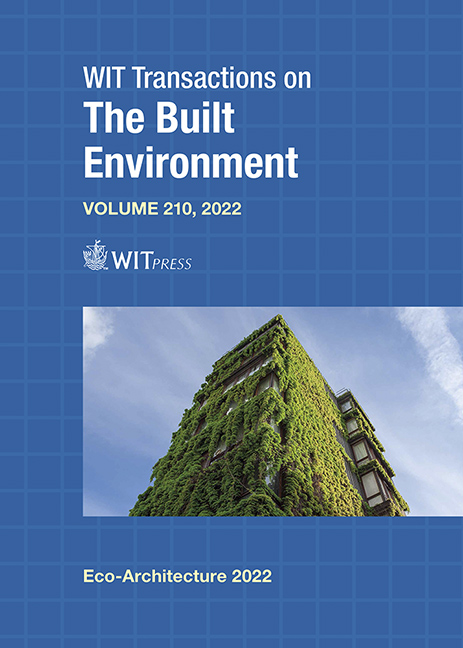RESIDENTIAL NEIGHBORHOOD ASSESSMENT IN THE CITY OF AL AIN, UNITED ARAB EMIRATES, AND THE IMPACT ON CLIMATE CHANGE (HEAT ISLAND EFFECT ANALYSIS)
Price
Free (open access)
Transaction
Volume
210
Pages
12
Page Range
127 - 138
Published
2022
Paper DOI
10.2495/ARC220111
Copyright
Author(s)
LINDITA BANDE, MOUAZ MOHAMED, YOSAN ASMELASH, AFRA ALNUAIMI
Abstract
Al Ain is an important city that has gone through major urban transformation over the last 50 years. These changes impact the development of neighborhoods, especially residential neighborhoods. The morphology of the urban blocks also impacted the heat island effect (UHI). UHI is one of the contributors to climate change. Therefore, having sustainable neighborhoods’ means reducing the UHI and making cities more livable. The methodology to be followed in this study is as residential blocks in Al Ain for analysis of current conditions and proposal for UHI reduction through different strategies, modelling and simulations to create and analyze the models in Rhino Grasshopper and discussing the findings and results. The aim is to divide the work for the two cities and then analyze the current conditions of the neighborhoods. Based on the findings, different strategies can be applied in the residential blocks to reduce the surface temperature of the streets and buildings, therefore reducing the UHI effect. Having sustainable neighborhoods has a direct impact in making cities more livable and improving the climate change. The main tools to be used are Rhino/Grasshopper. Through advanced software, the findings can be optimized and contribute to more sustainable neighborhoods.
Keywords
climate change, neighborhood assessment, grasshopper, walkability





